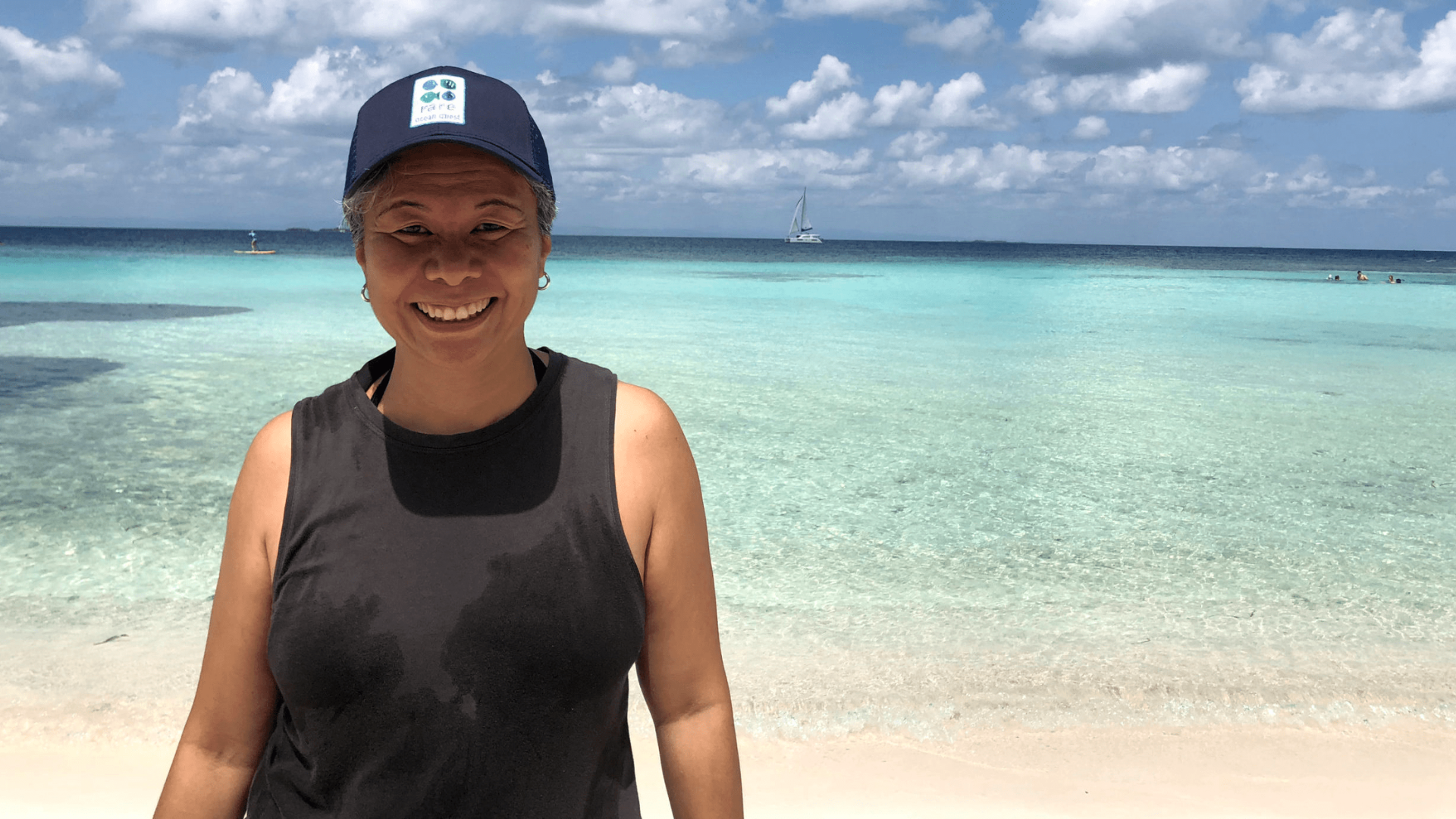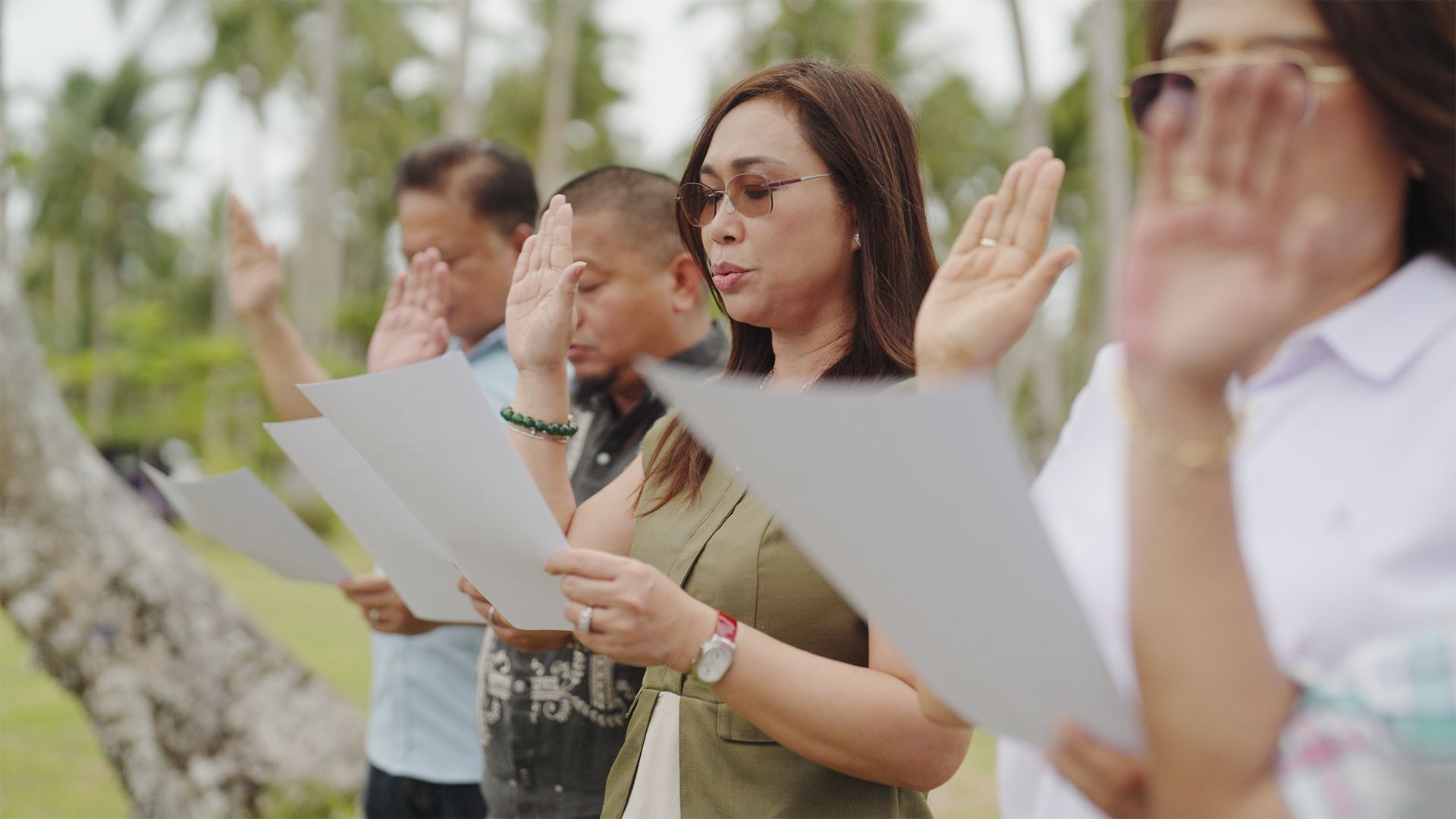A 'Rare' voice empowers the coastal communities
Filipina-led eco-initiative 'Coastal 500' emerges as a finalist in The Earthshot Prize 2023
By Mat Richter
In just a month, the eagerly awaited Earthshot Prize 2023, initiated by Prince William to celebrate impactful eco initiatives, will reveal its winners. As we anticipate this event, we shine a spotlight on Coastal 500, one of the 15 environmental projects contending for recognition.
In this edition of ECO VOICES, we talk to Rocky Sanchez Tirona, managing director of Rare's Fish Forever program and the driving force behind “Coastal 500.” She enlightens us on the critical significance of coastal sustainability and how local leaders are joining forces to raise the alarm for environmental emergencies.

Q: Could you provide an overview of the Coastal 500 initiative?
A: We are primarily focused on coastal fisheries, specifically the area closest to the shore, known as the 12 nautical miles zone, which in the Philippines translates to roughly 15 kilometers from the shore. This area is of paramount importance for two key reasons: it boasts the highest biodiversity, housing 83 percent of coral reefs, mangroves, and seagrasses, and it serves as the lifeblood for small-scale fishers who rely on it for sustenance and livelihood. Coastal 500, founded in 2021, is a global network of local leaders, as we firmly believe that collective action can drive meaningful change.
Q: Coastal 500 represents a network of mayors and local leaders from eight developing countries. How does this diverse group collaborate to address coastal protection challenges?
A: While coastal waters in developing tropical countries share similarities, they are also essential for the livelihoods of many. Common challenges include destructive fishing, overfishing, and competition with industrial fishing. Our teams collaborate with mayors in these countries to establish no-take zones or protected areas and facilitate the development of improved rules and regulations for fisheries management. A significant achievement has been bringing leaders from Brazil, Indonesia, and Honduras together at global events like the Our Oceans Conference in Panama, thus amplifying their voices on the global stage.

Q: Could you share some specific success stories or achievements of Coastal 500 that highlight its global impact?
A: We have witnessed impacts at the national level, such as the development of guidelines for coastal municipalities to allocate their budgets, influenced by resolutions from fisheries summits organized by mayors. In the Philippines, we have played a pivotal role in the creation of a model fisheries ordinance by the Department of the Interior and Local Government (DILG), which will be implemented in all 900 municipalities. Honduras stands as another success story, where coastal mayors collectively lobbied the national government to designate 12 nautical miles exclusively for artisanal fishing. These voices, elevated on the global stage, are gradually finding their way into international discourse.
Q: How does Coastal 500 plan to ensure the sustainability of its initiatives over time, and what are the initiative’s future goals?
A: Our learning sessions, including webinars, aim to help leaders devise financing mechanisms to allocate more funds or secure additional funding sources. Sustainability also hinges on elevating the profile of these leaders, inspiring them to prioritize coastal sustainability within their communities. Ultimately, we aspire for Coastal 500 to become a self-sustaining entity with accessible resources, even for mayors outside our current network. We envision an expansion of membership to encompass mayors beyond our existing collaborations.

Q: What inspired you to become a leader of leaders?
A: We've seen just how powerful it is when a leader is motivated. It started when we would bring mayors from neighboring municipalities together, and you'd watch them in action. We've seen it happen here in the Philippines where, after an election, two of the mayors will invite newcomers and then educate them and show them what we're doing to protect our coastal waters.
Q: Can you share a personal journey that shaped your perspective on leadership?
A: I think that a lot of people tend to get cynical about government and national politics. People think of it as a bad thing. Especially in the Philippines, where we're devolved and so much rests on local governments, we really shouldn't ignore the power of local leaders. They can get so much done when they believe in something, when they think something is important, and when they put their passion and their commitment to it.
In essence, Rare's Coastal 500 Initiative underscores the pivotal role of leaders in championing coastal sustainability, critical for safeguarding biodiversity and the livelihoods of local fishermen. This initiative serves as a testament to the collective efforts required for coastal sustainability and the importance of amplifying the voices of those who may otherwise remain unheard.